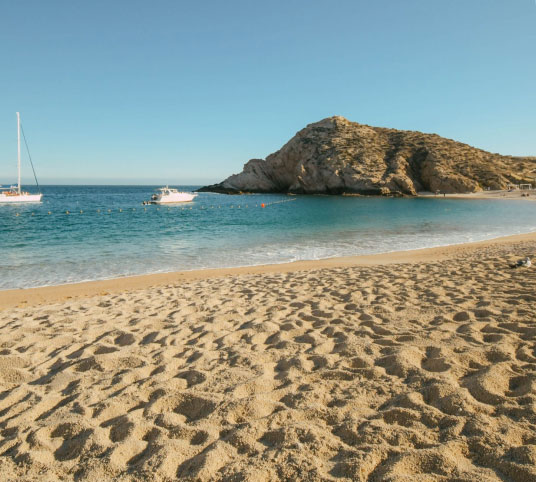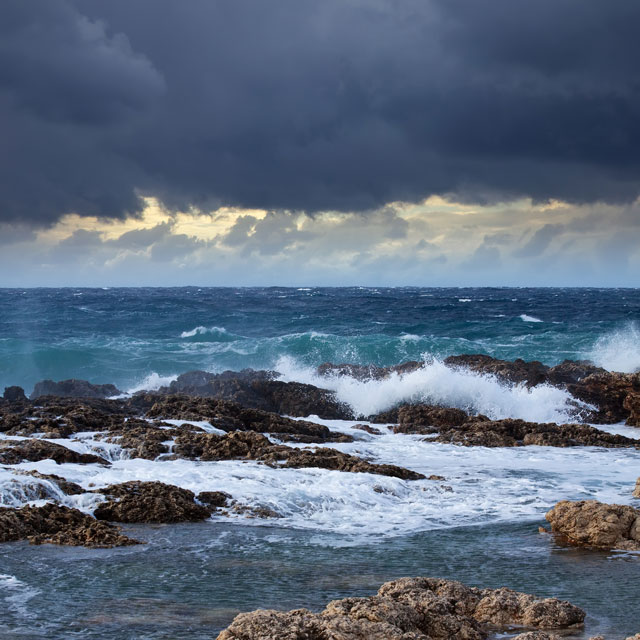
Chile’s iterative approach to sustainable ocean management
Sustainable Ocean Plan
Chile’s Sustainable Ocean Plan, known as their National Ocean Program (NOP), takes an ‘iterative approach’, setting out a series of key initiatives across ocean sectors and establishing baselines to achieve Chile’s commitment to sustainably manage 100% of ocean area under national jurisdiction.
Chile currently protects 43% of its jurisdictional waters, surpassing the global commitment set by more than 100 countries to protect 30% of national waters by 2030. Chile also has considerable impact on global ocean sectors with the tenth largest Exclusive Economic Zone (EEZ), twelfth largest fishing sector and second largest in the salmon aquaculture industry.
In 2016, Chile established an Inter-ministerial Working Group to coordinate ocean issues across the ministries with ocean responsibilities. The Working Group coordinated the initial analysis of Chile’s ocean policies and developed Guidelines for the National Ocean Policy that addressed four areas: (1) medium and long-term reach, (2) defining criteria for analysis, (3) identifying problems in different sectors, (4) analysis of the current sectoral policies.
The Ministerial Council for the Development of the National Ocean Policy oversaw contributions from academia and scientific community, NGOs and industry, as well as international experts to ensure sufficient technical capacity and a knowledge-based approach to this process.

Positive impacts
Chile’s National Ocean Policy launched in 2018 carrying six strategic aims: economic development, ocean conservation, ocean and safety, ocean and territory, ocean identity, and scientific development. The Council, which was presided over by the Minister of Foreign Affairs, was created to propose the National Ocean Policy to the President of the Republic and to establish the implementation, development and monitoring of the policy.
To implement Chile’s National Ocean Policy, they officially launched the National Ocean Program (also known as their Sustainable Ocean Plan) in 2023 which involves five ministries (foreign affairs, defense, environment, economy, and science), five strategic aims (economic development, ocean conservation, ocean and safety, ocean and territory, and scientific development), and forty-one initiatives. The National Ocean Program takes forward the objectives and guidelines from the National Ocean Policy into concrete actions for each sector.
The National Ocean Program assigned responsibilities within each ministry, allowing for crosscutting collaboration and shared ownership of the programme. For example, the Ministry of Environment is responsible for the initiative to evaluate the conservation status of marine biodiversity, the Ministry of Defense is responsible for increasing fishery enforcement operations, the Ministry of Science is responsible for implementing the Ocean Decade of Ocean Science for Sustainable Development, and the Ministry of Foreign Affairs is responsible for promoting Chile’s leadership on ocean issues. The programme helped ministries, who previously worked independently, collaborate towards shared goals of conservation and sustainable use of the ocean.
Chile is currently working to formally establish the National Ocean Program and will evaluate and iterate on the program in two to three years, recognising the program will need to change over time and require consistent review.

Challenges
The implementation of Chile’s iterative National Ocean Program encountered three main challenges:
Institutional coordination across ministries. Many of Chile’s ministries previously operated independently, thus forming a new coordinated arrangement was challenging to implement.
Developing a culture of collaboration and information sharing between agencies.
Infringement of mandates. Ensuring agreement that the new coordinated approach improves ocean outcomes rather than infringes on ministries’ existing mandates. To address this, the Foreign Minister presides over the Council, serving as a neutral body to leverage the NOP as an overarching goal across all ministries.
In addition to the above implementation challenges, balancing protection and production around Chile’s Marine Protected Areas also presented as a significant challenge in the SOP planning process. As 43% of Chile’s EEZ under some form of protection, Chile’s focus is now on transitioning to effective implementation of Marine Protected Areas (MPAs). Challenges with implementing Chile’s MPAs included creating management plans that define the boundaries of the plan, coordinating various actors within the institution to work towards a common goal, and the need to strengthen monitoring and surveillance through strategic partnerships.
Who were the stakeholders involved?
Several stakeholder groups helped to shape Chile’s National Ocean Program, with stakeholder engagement on specific initiatives led by the assigned ministry. The Council held three workshops with the fishing industry (industrial and artisanal fishers), non-governmental organisations, and the private sector during the development of the National Ocean Policy.
Further consultations with communities are planned during the next implementation phase of the National Ocean Program, and the Council will develop appropriate mechanisms to evaluate each ministry’s activities and planned implementation actions.
Benefits
Chile’s iterative and integrative approach to sustainable ocean management has shown several advantages:
Created connections and improved coordination between the ministries with ocean responsibilities. The Council for National Ocean Policy facilitated and fostered improved communication and coordination among ministries.
The process recognises ministries have specific mandates, but they need to collaborate. The Council, chaired by the Ministry of Foreign Affairs, helped develop an overarching framework that integrates policies across ministries. This recognises that while ministries have specific mandates, effective collaboration is needed to ensure shared understanding and alignment in working towards a sustainable ocean economy for the country.
Coordinate and justify essential budget needs. As five ministries are responsible for implementing various initiatives, Chile’s National Ocean Program enables each ministry to justify increased budgets for their ocean initiatives. They can reference the National Ocean Policy framework when making the case for expanded funding from the finance ministry.
Guidance for other countries
To distribute responsibility, countries could consider assigning ministry leads for specific ocean initiatives. Rather than assigning one ministry to cover all ocean issues, like the Environment Ministry, responsibility can be divided across relevant agencies. For instance, the Tourism Ministry could promote sustainable coastal tourism, the Fisheries and Aquaculture Ministry could build climate resilience in fisheries, and the Transport Ministry could manage ports. Initiatives can then be iteratively reviewed and updated across ministries over time. Chile also places a strong emphasis on strategic alliances as a key priority in Chile’s position in the international agenda.
Contact details
Patsy Nicole Contardo Urra
Abogada de Asuntos Oceánicos en Dirección de Medio Ambiente, Ocean Affairs Lawyer in the Directorate for the Environment,
Cambio Climático y Océanos Abogada de Asuntos Oceánicos en Dirección de Medio Ambiente, Climate Change and Oceans Lawyer for Ocean Affairs in the Environment Directorate,
Ministerio de Relaciones Exteriores / Ministry of Foreign Affairs Gobierno de Chile / Government of Chile




